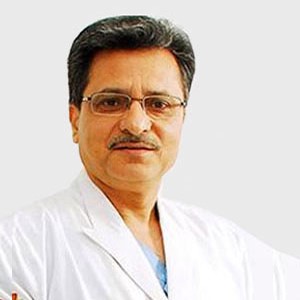What is the evaluation or diagnostic tests done before liver transplant?
- These tests will provide comprehensive data for the transplant team to assess the function of your liver and other body systems to determine if you are a candidate for transplant: • Magnetic resonance imaging (MRI) of abdomen/pelvis OR • Computed tomography (CT) scan of abdomen/pelvis • Dobutamine stress echocardiogram (DSE) • Ultrasound of abdomen/pelvis • Electrocardiogram/chest X-ray • Colonoscopy • Mammogram or Pap smear for women • Other testing including blood work
Types of liver transplant?
- There are three different types of liver transplant that may be offered to a person: • Orthotopic transplant – The most common type of liver transplant, an orthotopic transplant takes the entire liver from a deceased owner to give to the recipient. • Living donor transplant – In this type of transplant, the donor is a living person who gives one lobe of his or her liver to the recipient. • Split type of liver transplant – A split donation occurs when a deceased donor’s liver is split into the right and left lobe and given to two people, usually a child and an adult.
What is Swap transplant, Dual lobe liver transplant, ABO incompatible transplant?
- • Swap transplant is a barter of organs between two families who fail to find a compatible donor within their own kind. exchange of organs between two families, who cannot take the organ to their own family member because of non-matching blood group. • Dual lobe liver transplant is a very rare kind of surgery, where a part of the liver from two donors is transplanted in one recipient. • ABO-incompatible transplantation is a method in Organ transplantation that permits more efficient use of available organs regardless of ABO blood group which would otherwise be unavailable due to hyperacute rejection. This is primarily in use in infants and young toddlers
Procedure of liver transplant
- Incision:Liver transplant is performed through a very large infection as the surgeon have to remove the whole deceased liver and replace it with the new one. The liver is located in the right upper quadrant that’s where the incision is done Removal of the deceased Liver: Once the surgeon enters the abdomen, the process of removing the deceased liver begins. This involves dividing all the attachment that holds the Liver in place. The surgeon proceeds to divide all the blood vessels of the liver as well as the bile duct. The hepatic veins are divided along with the Inferior vena cava (IVC) and those ends are secured with clamps. The deceased liver is now removed. Transplantation: The new liver is then implanted. The surgeon begins by connecting the tip of the donors IVC to the patient’s IVC. Next the portal vein is connected. The clamps are removed and the blood flow in and out of the liver is restored. The hepatic artery and the bile duct are connected at last. The incision is closed.
Advantages and Disadvantages.
- Advantages: • The greatest benefit of liver transplant is prevention of death due to liver disease • The success rate of liver transplant surgery is very promising with up to 75% of people living beyond 5 years after a transplant • Following a Healthy lifestyle can greatly improve Survival rate and quality of life Disadvantages: The most common risk of liver transplant or graft rejection, post-surgical infection, excessive blood loss etc. The other risks of liver transplant also include: • Bile duct obstruction or leakage • Blood clots • Seizures • Disorientation and confusion • Side effects from immunosuppressive drugs
What are the risks and complications involved in Liver transplantation?
- Risks associated with the procedure include: • Bile duct complications, including bile duct leaks or shrinking of the bile ducts • Excessive Bleeding • Blood clots • Failure of donated liver • Infection • Rejection of donated liver • Mental confusion or seizures • Side effects from immunosuppressive drugs • Long-term complications may also include recurrence of liver disease in the transplanted liver
What are the donor requirements for Liver Transplantation?
- The living donor should: • Be a willing adult between age 18 and 60 • Be prepared to commit to the pre-donation evaluation process, surgery and recovery • Be in good health and psychological condition • Have a compatible blood type • Have healthy liver and kidney function • Be a healthy weight (BMI less than 32) • Be willing to abstain from alcohol until fully recovered
Can the Liver size regrow after the donation?
- The Liver is the only solid internal organ capable of full regeneration. It regenerates almost immediately after surgery and reaches its near normal size by 6-8 weeks.
Cost of liver transplantation in India?
- On average, the cost of liver transplant in India an indicative range would be somewhere between INR 20 lakh – INR 30 lakh. This cost is significantly very less when compared to the cost of the same treatment and care in hospitals in developed countries.
What activities are Restricted/Permitted after the transplant?
- Regular light exercise like walking is recommended to the patients. However, they should never lift heavy weights or perform abdominal exercises such as weight training and swimming until 3 months.
 India
India USA
USA UK
UK Thailand
Thailand Singapore
Singapore










